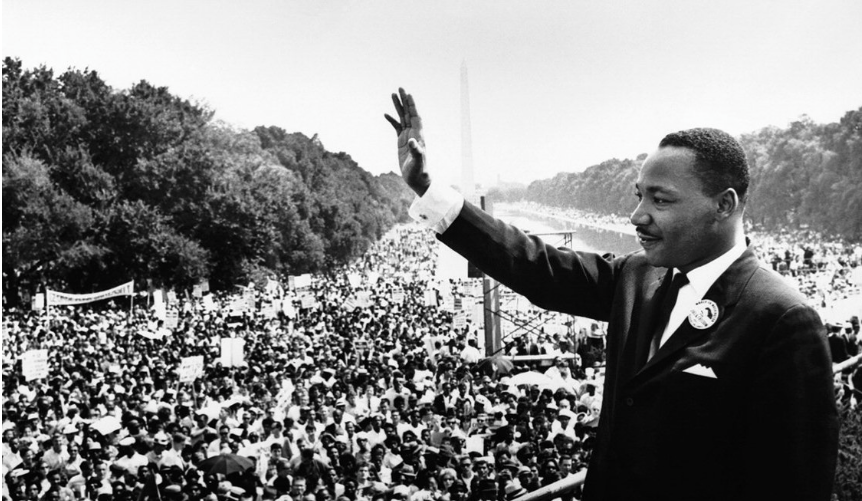“I Have a Dream:” How Martin Luther King, Jr.’s Famous Speech Still Rings True Today
March 7, 2016
On August 28, 1963—53 years ago—Dr. Martin Luther King stood in front of the Lincoln Memorial and declared, “I have a dream that one day this nation will rise up and live out the true meaning of its creed: ‘We hold these truths to be self-evident, that all men are created equal.’”
His strong appeal for the end of racism in the United States served as a defining moment of the Civil Rights Movement. His speech evidently proved immensely successful, seeing as in the following years both the Civil Rights Act and the Voting Rights Act were passed. The institution of these laws meant a legal end to discrimination based on race and resulted in more opportunities for millions of African Americans in the United States.
Through Martin Luther King making such a strong, rallying cry for justice, one would likely assume that his dream has fully come into existence; however, King’s statement that one day we will “live in a nation where [we] will not be judged by the color of [our] skin but by the content of [our] character” still resonates tremendously in American society today.
In 2016, at the height of political debates and campaigning, issues concerning racial discrimination are frequently at the center of discussion. With problems such as racial profiling and police brutality becoming evermore prominent, no politician’s words have as much power and impact to bring about change as the words of Dr. King.
When he preaches that one day “little black boys and black girls will be able to join hands with little white boys and white girls as sisters and brothers,” Martin Luther King motivates his listeners to express love and compassion for everyone—even those who may be considered different or the least among us. This idea not only relates to segregation in the 1900s, but also echoes strongly with the stark divide between races today, which is demonstrated through events such as the protests in Ferguson, Missouri last year or the shooting at a historic black church in Charleston, South Carolina in June 2015.
His same themes of equality can be applied to virtually any social justice conversation. Therefore, while solving race relations in America certainly requires a very complex solution in a political context, socially it is much simpler: we must evaluate someone’s “character,” rather than pass judgment based on their exterior. We must treat everyone as though they “are created equal.” And especially during Black History Month, we must remember the words and the actions of Martin Luther King Jr.
While his global dream of all-inclusive cooperation amongst all people may not yet have fully been achieved, Martin Luther King Jr. left behind an awe-inspiring legacy that has the potential to inspire and to alter the hearts and minds of everyone who hears his work.













